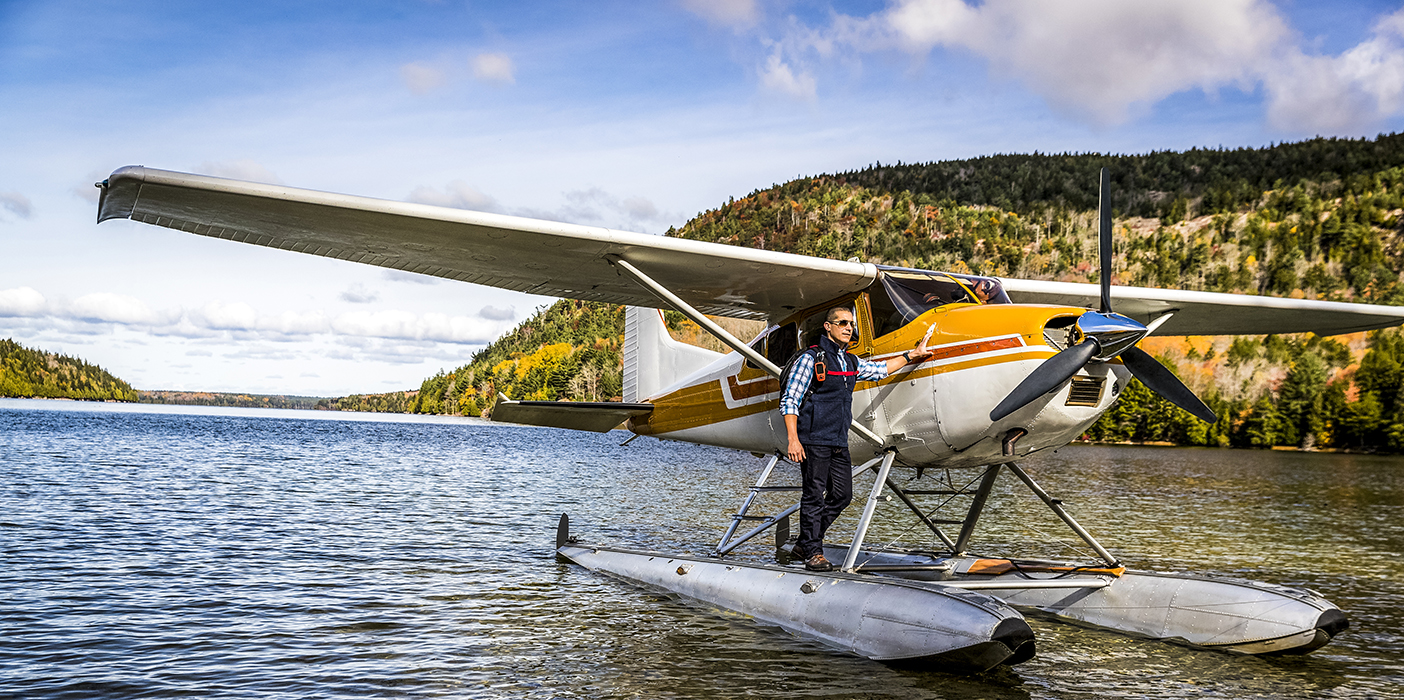
inReach: Pilot Saved by Following His Own Advice
On a Saturday in late March, an Idaho pilot departed a municipal airport in a single-engine Cessna 182 with his friend to enjoy an afternoon of flying above Idaho backcountry. They were flying over a mountainous National Forest area and crossing a valley when the Cessna was hit with a downdraft, causing the aircraft to lose altitude. The pilot tried to climb out, but it was too strong. Using his training, the pilot set up the aircraft for a mountainside landing and survival.
The Cessna crashed in snowy and forested terrain. Amazingly, the pilot and his friend were both unhurt other than some minor bruises and scratches. Neither lost consciousness. The aircraft was severely damaged, but it didn’t catch fire.
The pilot always carried an inReach device and other survival gear in case of emergency. Still in a bit of shock, he triggered an SOS on his inReach. Within a minute, he was in contact with the International Emergency Response Coordination Center (IERCC) staff at GEOS, and several minutes later, he sent a message to his wife and father letting them know that he and his friend were not injured and that they had sent a message requesting a rescue. The IERCC alerted the Custer County Sheriff’s Office about the crash, and the Sheriff’s Office provided the location of the pilot’s inReach device to South Custer Search and Rescue.
The rescue team found the mountain terrain challenging because of the spring snow, which made using ATVs impossible and traveling by snowmobile demanding, even for the expert drivers. Two hours after the crash, the pilot received a message from the IERCC that it could be a few hours before the search and rescue team could reach them. He understood that protocol recommended they stay at the crash site to make it easier for rescue crews to find them, but they were concerned about daylight. Sunset was only four hours ahead. They were also cold. They tried using a cell phone, but they were too deep in the mountain to get coverage. They decided to reposition to a ridge to get a better view of their location and to find a place to start a fire.
As they moved, the inReach device sent track points to the IERCC, who kept the search and rescue team aware of their location. The pilot’s friend was familiar with the area and happened to have a Garmin Rino 750 on hand, which they used to find a forest service road and decided it was a good place to stop. They could also hear the search and rescue team’s approaching snowmobiles. Soon enough the rescue team found them on the trail. They were taken to the fire hall in the town of Mackay, where they were checked out by a local EMT volunteer.
“We knew we could count on a fantastic Garmin team and the volunteers on the ground to help us get out of a bad situation and back home to our families,” the pilot shared. He added that he talks to many fellow pilots and students and encourages them to get an inReach device and prepare for any contingency. “If you do anything outdoors, even travel cross country in a car, you must have an inReach.”
Follow us on Facebook, Twitter, and Instagram for all the latest Garmin aviation announcements, news and stories.




